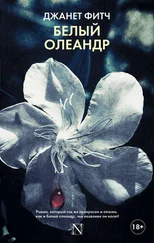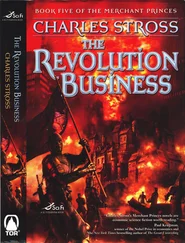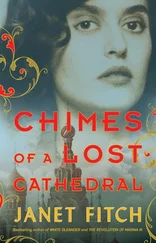FROM THE WINDOW OF my salmon-pink bedroom, I watched the snow whirl and worked on an aubade to that cloakroom kiss—the fur, his scent. What do you know about passion, you silly duck? I kissed the bracelet on my arm. How would it have been if we had shed our clothes in the cloakroom, and made love among the furs? I unspooled scenarios in my mind: Kolya and I in years to come, separated by some circumstance—tragic—then him catching sight of me across a room, like Tatiana with Onegin. How he would remember that moment in that long-ago cloakroom, how he would yearn. I wept just imagining it.
I thought of Kolya reading my poems on the train today, on the way back to his unit, seated among the other soldiers. Would he recognize himself in the figure of the ringmaster with his shiny moustache and his gleaming buttons? That poem was a love letter. I knew there was danger in showing too much of my passion—it frightened people, like it had the boys I’d kissed in stairways and at children’s parties. I shrugged the shawl from my shoulders—it was so hot in here—opened the fortochka window, and paced, stopping for the hundredth time to look at myself in the vanity mirror: my red hair, the round dark eyes of a Commedia Columbine, the freckles and blush in my cheeks. My fat lips, still impressed with his kisses. “Lyubimiy,” I whispered. Beloved. I could smell him in my hair. I wondered if he could smell me, too—I wished I had a scent of my own and not Mother’s, but it was a little late for that. I could only find peace by imagining myself a few years hence, looking back at all this as if it was already done. I sat back down at my desk and wrote:
You talk to the night.
I was her first, you say.
Someday it would be me who’d be quoted in girls’ diaries. Lovers would recite my verses in the depths of the night. I would be Makarova by then, the way people said Akhmatova or Tsvetaeva.
And you’ll say
You knew me once
When my dress was made of autumn leaves
And my hair a smoldering fire
As you smoke your cigar
Sip whisky with its peaty smoke.
Memory fades, but never that.
A kiss among furs,
Another kind of fire.
Akhmatova would do it with a gesture. And I put my left glove onto my right hand… Above my head, her profile hung in a frame between the windows. Seryozha had cut it for me from black paper. My muse, my lighthouse, with her Roman nose and bundle of long hair done up the way I wore my own. I imagined her at Wolf’s bookshop—maybe even today!—picking up my book of poems. Would she remember the girl she’d met one night at the Stray Dog Café? Under the glass of my desk, I kept the calling card she’d signed—the fine clear hand, the letters unconnected, the writing running uphill: To Marina—Bravery, in love as in art. A. I touched that A with my fingertips. Was I brave enough?
That Stray Dog world had already ended. I’d squeaked through the doors just as they were closing and managed to get down that famous staircase behind the Hotel Europa. How many afternoons I’d spent in the square, sitting on a bench under the statue of Pushkin, my sights on that subterranean entrance, hoping to catch a glimpse of her graceful figure, tall, stately, dark-haired, wearing a black shawl and her famous black beads. But I never saw anyone come in or out except men carrying crates on their shoulders. THE STRAY DOG ARTISTIC CABARET was a place of late night carousal, where the gods drank and smoked and recited, where they fell in love.
Mina and Varvara often kept me company in my vigil, attempting to appear blasé and sophisticated while eating nonpareils from paper cones. Varvara smoked her cigarette boldly in the open air, daring passersby to comment, meeting their disapproving eyes. Then came the autumn afternoon she’d had enough of my torment. She crushed her cigarette into the stone and said, “Why don’t we just go there sometime? This mooning around’s getting on my nerves.”
“They’d never let us in,” I said, but my heart already thumped with the possibility. Could we? They’d throw us out, but just for a moment, even an instant, to enter the holy of holies? It was like a door that I’d always believed to be firmly secured—and now she was questioning if it was even locked at all. “When would we go?”
“Tonight,” she said.
“We can’t,” Mina said, dropping a candy onto the pavement. “We have two tests tomorrow.”
But tests and grades were the furthest thing from my mind, which flew this way and that like a bird caught in a gallery, searching for an exit. Mother and Father were attending a party with the British second secretary and his wife… it would only be a matter of getting around Miss Haddon-Finch, our governess. Our nanny, Avdokia, wouldn’t tell. She enjoyed our small rebellions, sometimes even collaborated when she felt Father was being harsh. The Russian peasant is, at bottom, an anarchist.
First I had to set my trap. On the way home, I stopped at Wolf’s bookshop and bought Miss Haddon-Finch a special gift: Penrod, by Booth Tarkington, the latest arrival from England, having miraculously made it through the blockade. Not cheap, but it would be well worth it.
“Why, thank you, Marina, dear. What a thoughtful gesture,” she said that evening, stroking the cover of the book.
Seryozha was onto me instantly. He pounced the moment she left the nursery, forcing me to tell him what I was up to. I explained why I couldn’t take him—at fourteen, slender and small-boned, he was often mistaken for twelve—but he threatened to tell Father if I left him behind. He didn’t care about poetry, but the interior of the Stray Dog had been painted by Sudeikin, who’d designed sets for Diaghilev. Seryozha had to see it. “If I don’t go, you don’t go,” he said, and I could not persuade or bribe him.
That evening, with Mother and Father off with the British and Miss Haddon-Finch in bed with her book, we dressed in our most grown-up clothes and made our way to Mikhailovskaya Square. The night tasted of the coming frost, and the trees were already bare. Varvara stepped out of the shadows, and with her, Mina, who’d come despite her misgivings. She hated to be accused of being a grade-grubber and a baby. I held the finial of the stair rail, rubbing it with my palm as if I could receive an impression from it of all those who had touched it before me. At the bottom of the stone stairs, the black door called to me. It was one thing to dream, another to actually barge in upon one’s gods at play.
I took a step down, and another. A line occurred to me: In Petrograd, you go down into heaven. I took it as a sign, inspiration already arriving. How long did it take to traverse those dozen or so steps? The worn egg-shaped doorknob fitted itself to my hand. I trembled as I pushed it open.
No absinthe-reeking netherworld awaited us, no flocked walls or tufted sofas, no hookahs. Instead, we found ourselves in a smoky cellar, walls and ceilings covered with Sudeikin’s folk-style birds. People drank perched on straw stools at small tables, or along the banquettes that lined the walls. Smoke hung thick as fog, and on a bare stage a lithe dancer performed an angular modern choreography on top of a large mirror. “Karsavina,” my brother whispered excitedly. The great ballerina, on whom Fokine had launched so many of the Diaghilev ballets. We’d seen her at the Mariinsky Theater that season in Swan Lake, and here she was dancing on a mirror, one dark-haired Karsavina above and an upside-down one below, as if floating in midair.
We huddled in the entryway, trying to take in as much of the scene as we could before the portly owner, busy with the two gentlemen in front of us, could notice the presence of a quartet of underage spies and toss us out. Luckily, there was a disagreement over the admission price. “Hey,” the first man said, “you didn’t charge the people who came in just before us.”
Читать дальше












